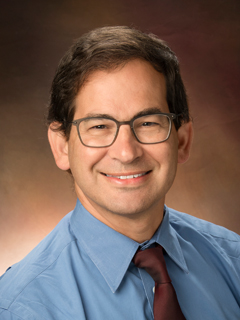HOW CAN WE HELP YOU? Call 1-800-TRY-CHOP
CROSSING
This study is now recruiting.
A study to investigate changes of symptoms and esophageal cell structure with tezepelumab compared with placebo in patients aged 12 to 80 years old with eosinophilic esophagitis. Subjects up to 21 years of age will be enrolled at CHOP.
Who Do I Contact?
If you are interested in participating in the study or want to learn more please contact our study team at carbonara [at] chop.edu or 267-426-8603.
ClinicalTrials.gov Identifier
Visit Criteria
Participation in this study may last up to 1 year and 5 months (or 72 weeks).
This study consists of:
Screening period: If you meet the screening criteria through a series of tests and review of your medical records, you will be randomly assigned a study treatment. “Randomly assigned” means that whatever treatment you get will be by chance, like flipping a coin or drawing names out of a hat. You will be chosen by a computer to be in one of 3 groups:
- Group 1: to receive 210 mg of the study drug (tezepelumab) every 4 weeks as two injections under your skin, OR
- Group 2: to receive 420 mg of the study drug (tezepelumab) every 4 weeks as two injections under your skin, OR
- Group 3: to receive placebo every 4 weeks as two injections under your skin
The study groups are assigned in a 1:1:1 ratio, which means that you have a two out of three chance of being given tezepelumab. And about a one out of three chance of receiving placebo.
Participation in the Treatment period will be one year, you will need to take the study drug tezepelumab or placebo for 1 year with up to 17 study visits. If you decide to participate in the Extended active treatment part of the study, your participation will last up to 1 year and 5 months (72 weeks) with up to 23 study visits. You must provide additional consent for the Extended active treatment part of the study.
There is a 12-week off-treatment safety follow-up period; this will occur after completing either the double-blind or extended active treatment parts of the study. You and your health insurance will pay for the first endoscopy done at Visit 1; the research study will pay for endoscopies done at Visit 8, Visit 15a and if the study drug is discontinued early.
Study procedures are listed below.
Experimental procedures:
- Administration of tezepelumab or placebo via subcutaneous (under the skin) injection
- Endoscopy with biopsy, with optional EndoFLIP (a device which measures esophageal stiffness)
- Randomization
Non-Experimental Procedures:
- Blood and urine tests
- Pregnancy tests
- ECGs
- Physical exams and vital signs
- Medical record review
- Answer quality of life questionnaires
- At-home questionnaires
- Telephone follow-up
- Optional qualitative interview, EndoFLIP, and genetic blood sample collection
Leader
